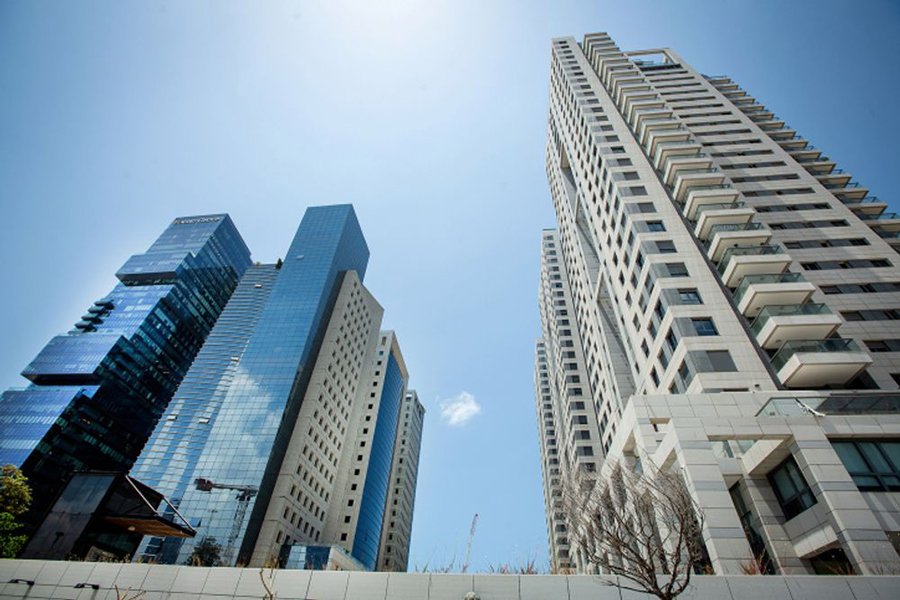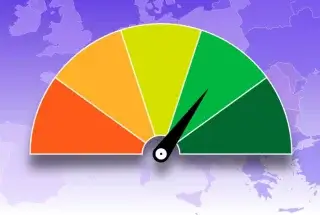Israel’s Housing Market Crashes to a 20-Year Low

Photo:i24news.tv
In June 2025, Israel’s real estate market recorded the lowest number of transactions in more than two decades. Housing sales plunged amid the ongoing war and tightening financing conditions, i24
news reported, citing Ministry of Finance data.
A total of 5,844 housing units were sold during June — 29% fewer than the same month in 2024 and 13% lower than May. The new-build sector was hit hardest, collapsing by 46% with only 1,954 units sold. The Ministry confirmed that these were the lowest June figures since the early 2000s.
The secondary market also contracted — down 16% year-on-year and 10% compared to May. However, in the first half of 2025, resale housing still posted slight growth of 3% versus H1 2024, underlining its relative resilience.
Regional Breakdown
The sharpest declines were seen in coastal cities. In Tel Aviv and Bat Yam, just 137 new apartments were sold in June — half the volume of last year. These areas, long considered highly dynamic, were strongly impacted by tighter credit rules and heightened security risks.
All buyer categories were affected:
Investor share dropped 36% (including a 37% fall among foreign buyers).
Net investor purchases fell 42%.
Households upgrading their living conditions saw activity fall by ~20%.
Falling Prices
According to the Central Bureau of Statistics, Israel’s housing price index fell 1.3% over the past four months, equivalent to ₪30,000 ($8,845).
Tel Aviv recorded the steepest fall: -4.2% (₪145,000 / $42,746 per apartment).
Jerusalem dropped 0.5% (₪15,000 / $4,422).
Central District down 0.4% (₪11,000 / $3,243).
Southern District fell 0.3%.
Haifa rose 2.3% (₪42,000 / $12,386).
Northern District edged up 0.2%.
Financing Rules to Blame
The main factor behind the slump was the restriction of the “20–80” financing scheme — allowing buyers to pay 20% at signing and 80% on key handover. The Bank of Israel limited its use to reduce developer risk, but demand collapsed as buyers lost flexibility.
Shift Abroad
Many Israelis are turning to foreign property. Georgia has emerged as a key destination, where Israelis now account for 11% of foreign buyers in Tbilisi. According to lawyer Gia Poladishvili, Israeli citizens are actively investing $100,000–$150,000 in Batumi and Tbilisi apartments, often securing residency permits.
Structural Market Divide
Analysts note Israel’s middle class is leaving the housing market. Demand, however, remains robust in the luxury sector. In Q2, Tel Aviv apartment prices rose 5% quarter-on-quarter.
3-room apartments surged 8% to ₪3.9m ($1.1m).
4-room units rose 6% to ₪5.2m ($1.5m).
44 transactions exceeded ₪10m ($2.9m), outpacing Q1 (42 deals).
This split shows price indices are driven by mass-market weakness, while luxury housing remains buoyant — deepening structural inequality.
Outlook
The mix of war-related uncertainty and tighter credit rules is weighing more heavily than normal cyclical trends. Without easing of conditions or a stabilization in security, no rebound is expected soon. The Ministry of Finance warns sales could stay depressed through end-2025.
At the same time, experts point to commercial real estate as a growth area. The sector is valued at $19.21bn and could reach $26.36bn by 2030 with a 6.5% CAGR. Warehouses, logistics, offices and data centers remain resilient despite the housing slump.
Подсказки: Israel, housing market, real estate, property prices, Tel Aviv, Jerusalem, Haifa, Georgia, Tbilisi, Batumi, investors, new-builds, secondary market, mortgages, luxury property, Bank of Israel, finance








